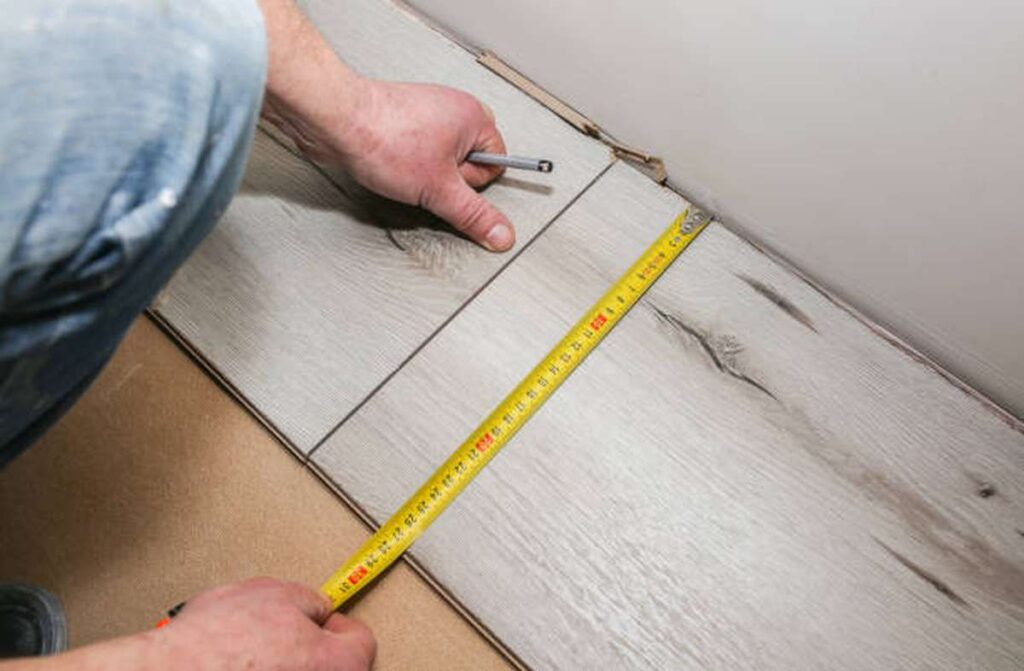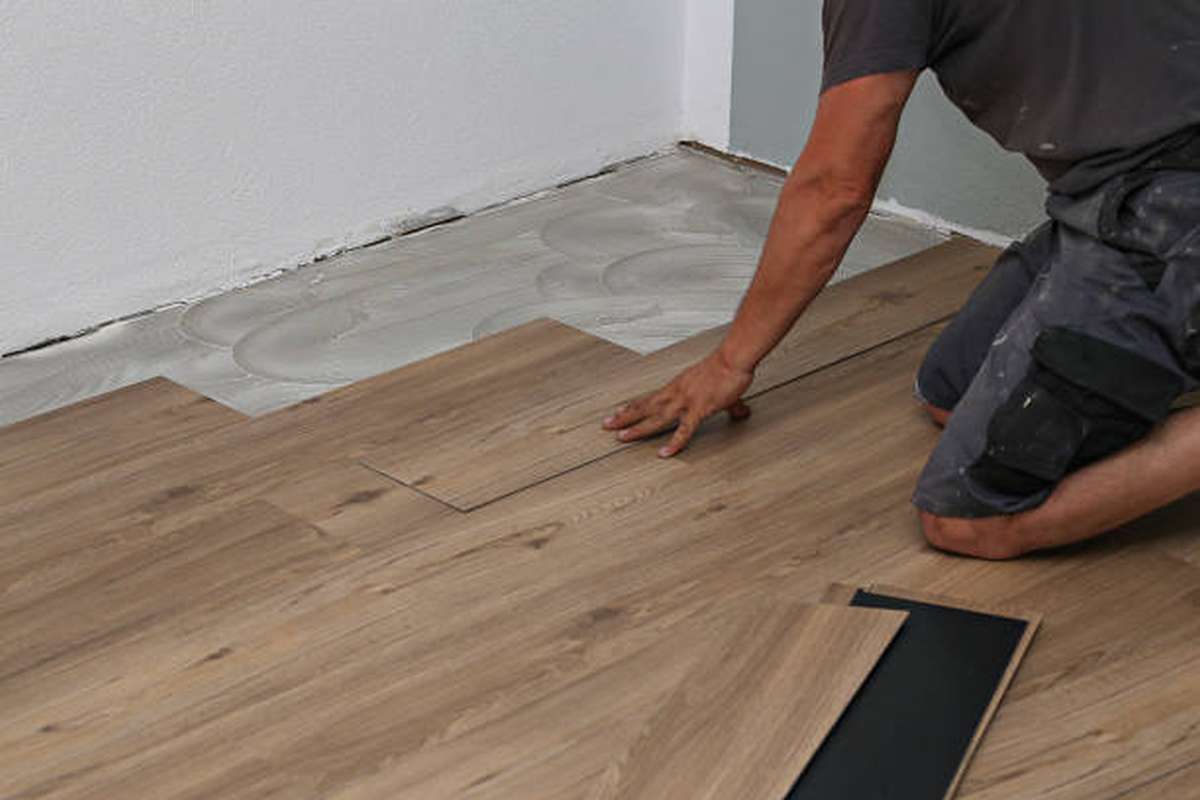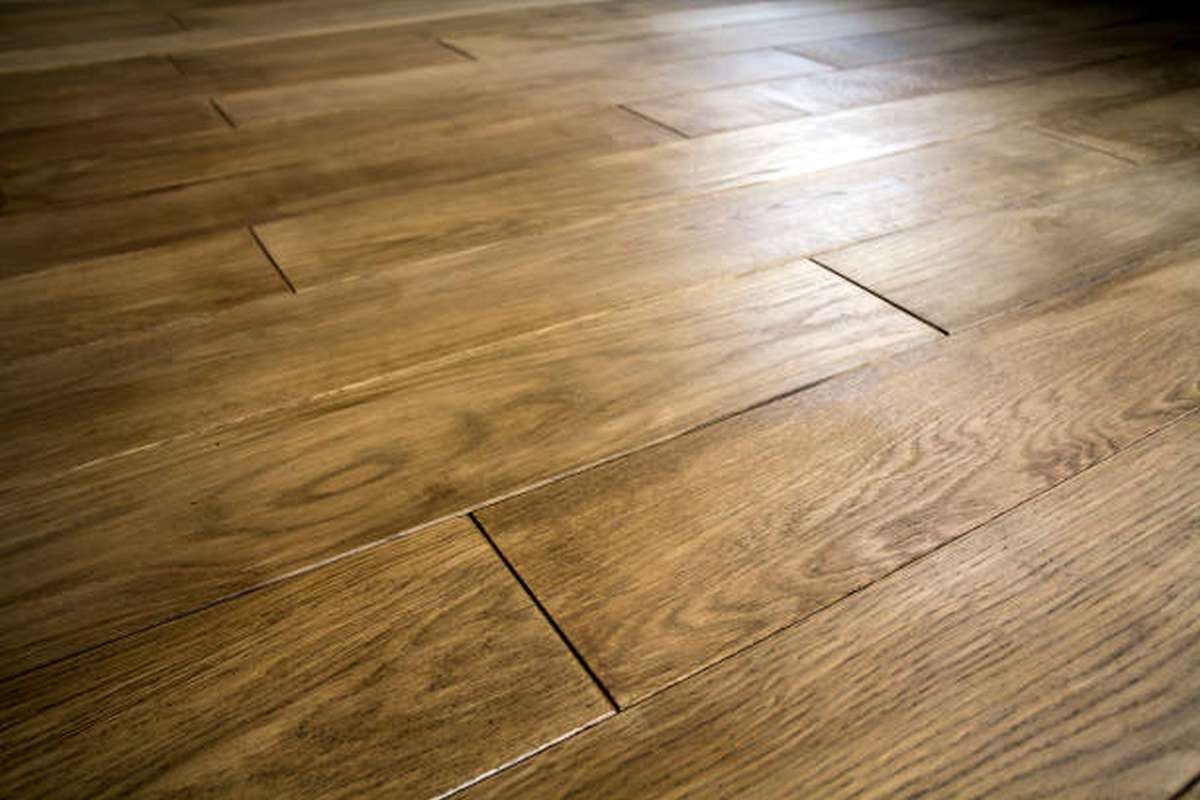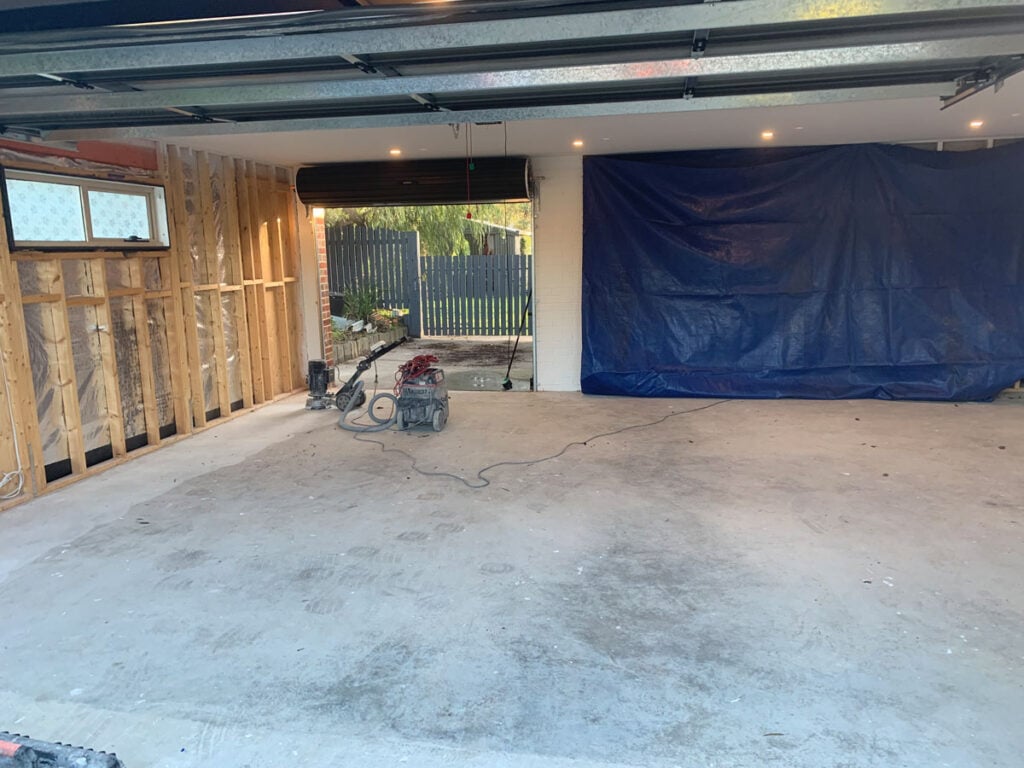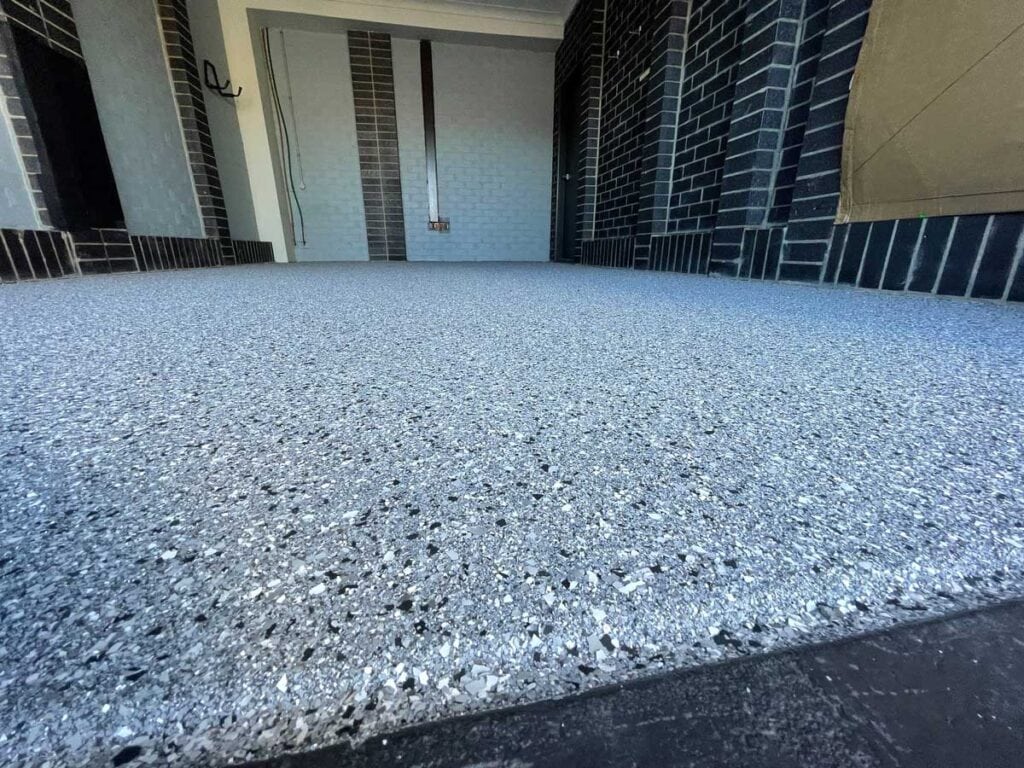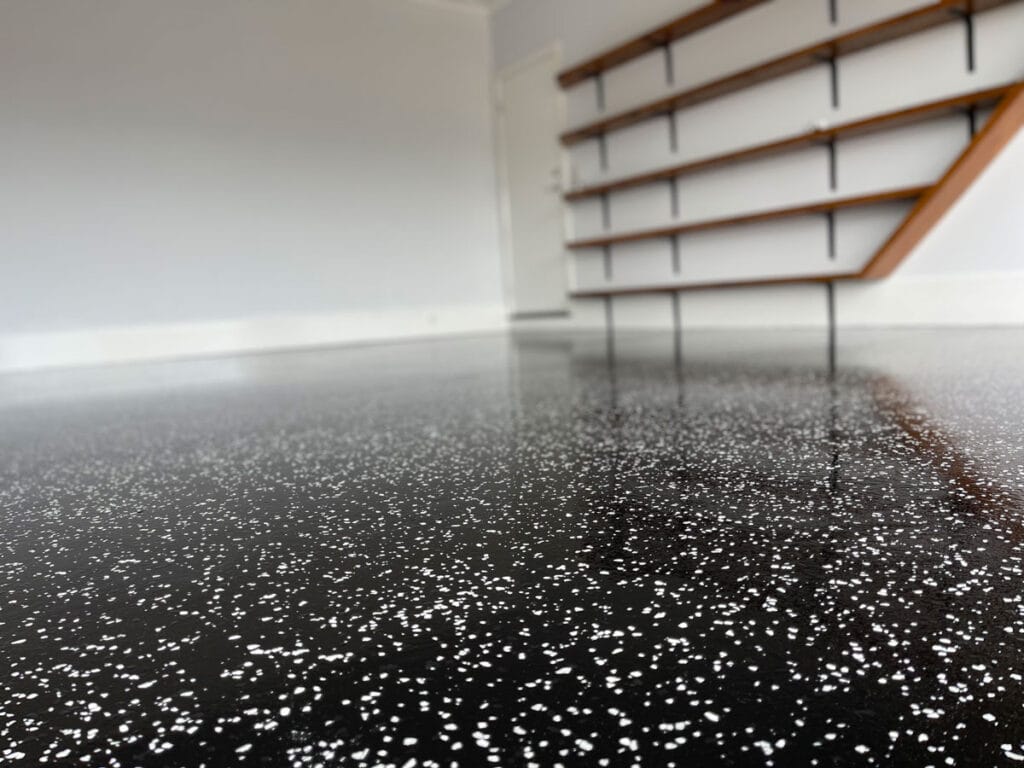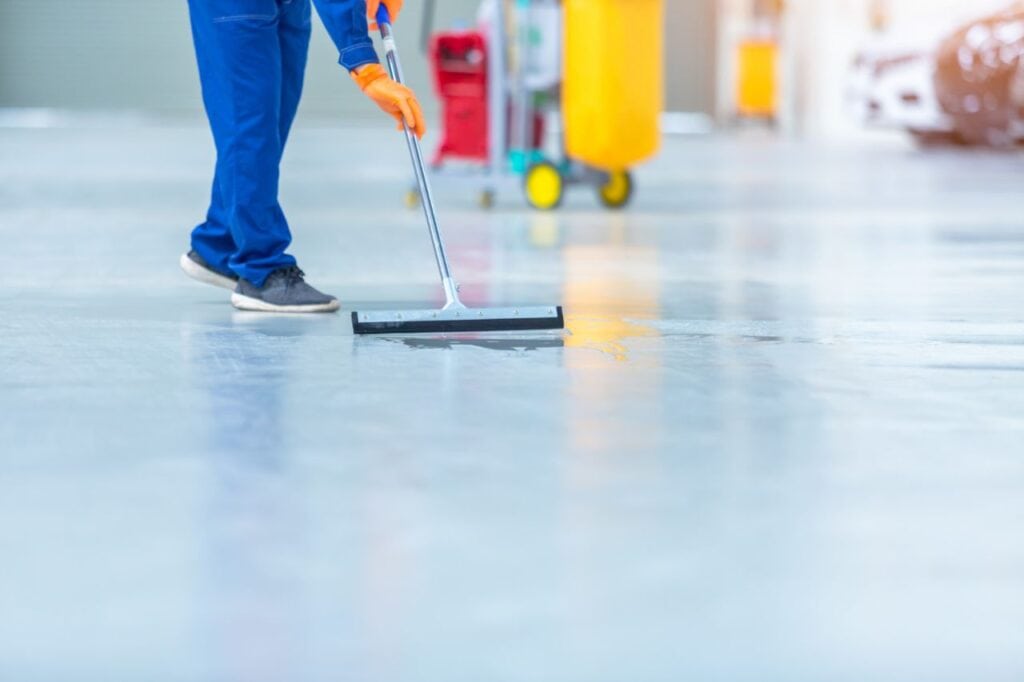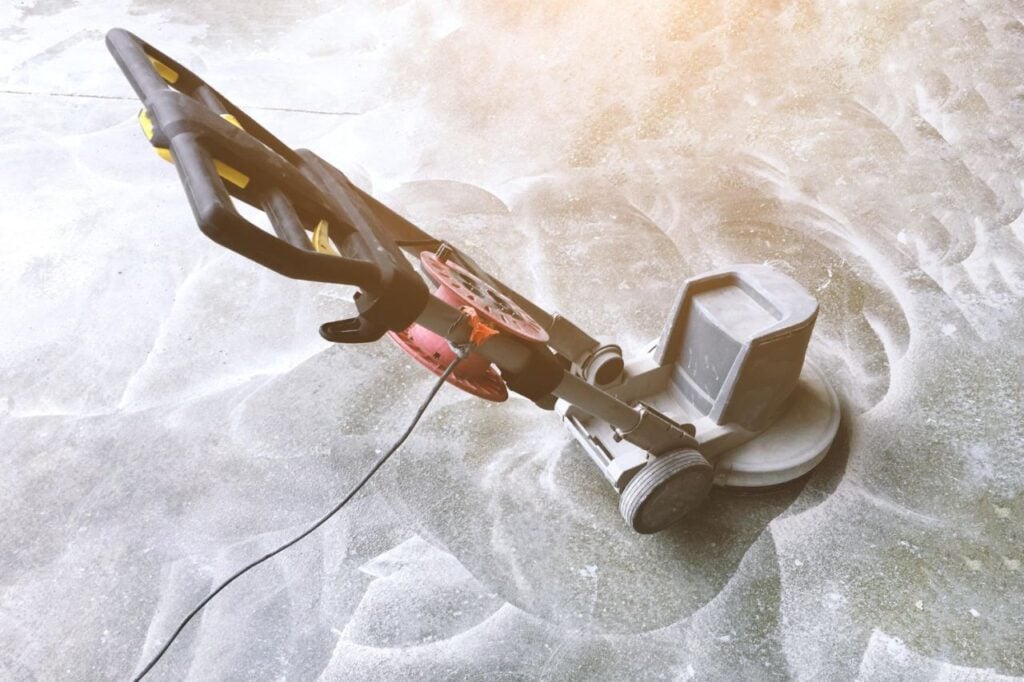Are you considering incorporating vinyl flooring into your upcoming construction or remodelling project? The world of vinyl flooring can be overwhelming with its numerous product variations and the use of various acronyms. You may come across the term "engineered vinyl plank flooring" or EVP as you explore different options.
Engineered vinyl flooring, also known as EVP flooring, is a type of flooring that offers several distinct features. It comprises a highly realistic and exceptionally durable vinyl top layer, along with a dimensionally stable core made of HDF (High-Density Fiberboard) or MDF (Medium-Density Fiberboard). These components are carefully manufactured and fused to form plank or panel shapes, then securely attached to a backing material.
In this article, we aim to delve deeper into the details of EVP flooring, also known as rigid core luxury vinyl flooring. By understanding the characteristics and benefits of this flooring option, you can make an informed decision about whether it is the best choice for your home. We refer to EVP flooring as the same product as rigid core luxury vinyl flooring.
What Differs Between LVP and EVP?
Luxury vinyl planks (LVP) and engineered vinyl planks (EVP) share similarities in visual appearance, durability, and water resistance. However, understanding the key differences between the two is crucial in selecting the most suitable flooring option.
When comparing LVP and EVP, many people opt for EVP for two primary reasons: ease of installation and stability. EVP offers a straightforward installation process, similar to laminate flooring, where the planks can be easily assembled. Additionally, EVP sets itself apart from LVP with its rigid core, typically made of stone-based materials, which ensures exceptional stability and longevity for the planks.
Let's delve deeper into how a rigid core enhances the performance of vinyl planks and explore further distinctions between EVP and LVP.
- Installation: Due to a rigid core, engineered vinyl planks (EVP) exhibit similar characteristics to laminate planks. They are stiff and feature a click-and-lock mechanism allowing easy assembly, resulting in a floating floor installation. On the other hand, luxury vinyl planks (LVP) have a flexible core, which gives them a bendable quality and prevents them from being clicked and locked together like EVP. Consequently, LVP needs to be glued down to the floor during installation.
- Subfloors: The subfloor refers to the existing flooring material beneath the new vinyl installation. The subfloor must be perfectly smooth when using a glue-down luxury vinyl plank (LVP) to prevent imperfections from showing through the new floor. In the case of engineered vinyl plank (EVP) installation, the primary consideration is that the subfloor is level. Rigid planks do not conform to uneven surfaces, so a level subfloor is essential for a successful EVP installation.
- Repair: Both engineered vinyl plank (EVP) and luxury vinyl plank (LVP) can be repaired, although the specific repair processes differ. For LVP, repairing a damaged plank typically involves cutting and peeling up the affected plank. This process requires some knowledge and skill, and it may be necessary to seek the assistance of a professional to ensure proper repair. On the other hand, repairing EVP involves separating and replacing a damaged plank from its neighbouring planks. This process also requires expertise to ensure a seamless replacement matching the surrounding planks. Sometimes, it may be advisable to consult a professional to handle the repair and ensure the best results.
- Durability: Both LVP and EVP are strong, resilient floors. You might have read that EVP has better durability, but we don't necessarily agree. Yes, EVP is structurally stronger and more stable, but LVP is still a very resilient flooring, so as long as whichever type you choose is installed properly, you probably won't notice much of a difference in the wear and tear of your floor.
EVP Flooring: What Do We Mean by That?
Vinyl sheet flooring was the initial offering, followed by the introduction of luxury vinyl plank (LVP), and now engineered vinyl plank flooring (EVP) has emerged. EVP distinguishes itself by featuring a rigid core, in contrast to the flexible core found in LVP. This characteristic has led to EVP being known as rigid core flooring or luxury vinyl, as they are essentially synonymous.
With the substitution of the flexible vinyl core in LVP for a more resilient and dimensionally stable rigid core, EVP has elevated the standards of vinyl flooring. Therefore, one can consider rigid-core EVP an enhanced version of luxury vinyl.
EVP typically comes in floating planks and shares many similarities with regular luxury vinyl planks (LVP). However, there are significant distinctions between EVP and LVP, primarily in their construction.
EVP consists of five layers, which include:
- Wear Layer: The wear layer is a transparent protective barrier, safeguarding the EVP against scratches and everyday wear and ensuring its long-lasting durability.
- Deco Layer: High-quality EVP products boast a deco layer featuring exceptionally realistic printed designs that closely replicate the appearance and texture of natural stone, ceramic, or hardwood.
- Vinyl Core: The vinyl core is responsible for the remarkable waterproof properties that EVP is renowned for, providing resistance to moisture and preventing damage caused by water.
- Rigid Stone-Based Core: Constructed using limestone, the rigid stone-based core adds stability to the EVP flooring and effectively conceals any flaws or irregularities on the subfloor.
- Backing Layer: Composed of soft materials like felt or cork, the backing layer enhances EVP's sound-absorbing capabilities while providing additional grip for enhanced stability.
The Evolution of Engineered Flooring
The pros and negatives columns one had to weigh at different historical points while choosing architectural materials, particularly flooring, were unquestionably more rigorous. Would you prefer hardwood floors? It would be preferable to avoid exposing it to a location with a lot of moisture. Do you want to make a good first impression on yourself and your visitors? So it would be wise to avoid vinyl.
But in the twenty-first century, those dynamics have changed. Today, you are not required to make such kinds of compromises.
This is so that the benefits of superior design and practicality can be combined into a single bundle rather than mutually exclusive. The industry constantly seeks to innovate to break down those typical pros and negatives columns. Nowadays, obtaining the best of both worlds is much simpler when selecting the kind of floor covering that will look fantastic, withstand wear, and stay for a very long time. These types of benefits have become more prevalent in flooring goods. But what is a recent, strong example?
Enter engineered vinyl flooring!
Engineered Vinyl Flooring Anatomy
You're probably familiar with engineered wood flooring, which consists of a real hardwood layer supported by an HDF or MDF core and a backing layer. Similarly, engineered vinyl follows the same principle and is manufactured in plank or panel format to create a seamless surface when installed. In engineered vinyl flooring, the top layer features a high-resolution image that mimics the appearance of a wood or ceramic floor, serving both a decorative purpose and offering durability to withstand foot traffic.
Benefits of EVP Flooring
Despite being a relatively recent addition to the flooring market, engineered vinyl plank (EVP) has gained significant popularity and needs a good reason. Let's explore the factors contributing to EVP's success in luxury vinyl flooring.
Waterproof
If you desire the aesthetic of wood flooring in typically problematic areas, engineered vinyl plank (EVP) flooring is ideal. It allows you to achieve the look of wood flooring in unconventional spaces.
Attractive Appearance And Texture
EVP provides an affordable alternative to hardwood flooring while still delivering the same aesthetic appeal. With its realistic wood, stone, and ceramic tile patterns, EVP closely resembles authentic materials, making it difficult to distinguish between EVP and real hardwood. This allows you to achieve the desired look for your space at a significantly lower cost without compromising on quality.
Easy Installation
Installing engineered vinyl planks is as simple and efficient as assembling a puzzle. The planks are designed to click together, allowing for a seamless and speedy installation process. This user-friendly feature makes EVP an excellent choice for those seeking a flooring option that can be installed quickly and with ease.
Durable
Due to its rigid stone core, EVP stands out as a highly durable flooring option among vinyl products. This core provides exceptional resilience, surpassing many hardwood flooring options in terms of durability. With EVP, you can enjoy peace of mind knowing that your floor will withstand everyday wear and tear, including scratches and impacts, even in households with children, pets, or high activity levels. This durability translates into a long-lasting flooring solution, minimizing the need for frequent replacements or costly repairs.
Comfort
Unlike wood or stone, EVP has a softer surface that offers enhanced underfoot comfort. This characteristic is particularly valuable in creating a pleasant and cozy environment. Additionally, EVP is known for its sound-reducing properties, a desirable feature for various settings. Including cork in the flooring contributes to effective sound insulation, ensuring a quieter atmosphere in your home or facility.
Furthermore, the cork underlayment in EVP serves multiple purposes. Not only does it provide sound-muffling benefits, but it also helps to conceal imperfections on the subfloor. This means that even if the subfloor has minor flaws or uneven areas, the cork underlayment ensures a level and smooth surface for your EVP flooring, resulting in a visually appealing and professionally finished look.
Low Maintenance
Regarding flooring, having a low-maintenance option is highly desirable to avoid excessive time and costs spent on upkeep. EVP excels in this aspect, requiring minimal maintenance to maintain its pristine condition.
You only need a simple mopping using water and a mild soap solution to clean EVP flooring. This gentle cleaning method effectively removes dirt and stains without causing any damage to the floor. Regular vacuuming or sweeping also helps eliminate loose debris and maintain a clean surface.
It's crucial to use the appropriate vacuum accessories to avoid potential damage. Be cautious and avoid using beater bars or rotating brush vacuums, as these can scratch and prematurely age EVP floors. By adhering to these basic maintenance practices of mopping and sweeping, you can keep your EVP floors looking great without any extensive maintenance requirements.
Environmentally Friendly
By opting for EVP flooring, you can enhance the potential for your facility to attain LEED certification. This is due to the utilization of renewable materials, recyclable content, and low-emitting substances in the manufacturing process of EVP.
Where and Why Should Engineered Vinyl Flooring Be Installed?
One of the advantages of engineered floors, including EVP, is the installation flexibility. Unlike traditional hardwood floors that require nailing to a subfloor, engineered floors can be floated, making them suitable for DIY installation. This makes them a convenient option if you're considering remodelling your family room in preparation for upcoming gatherings without much hassle.
In terms of where you can install EVP, the possibilities are vast. With fewer restrictions than many other flooring types, you can confidently use it in previously considered unsuitable areas, such as mudrooms, laundry areas, and bathrooms. This opens up opportunities to enhance these spaces with vinyl top layers' various colours and patterns while benefiting from a lightweight and affordable floor covering.
Conclusion
There are many benefits to installing engineered vinyl flooring (EVP) in your home. High-Density Fibreboard (HDF) or Medium-Density Fibreboard (MDF) provides dimensional stability, and a realistic and long-lasting vinyl top layer completes the product. Like laminate flooring, installing EVP is simple, and the material's hard core—often comprised of stone-based materials—ensures the planks are both stable and durable. Luxury vinyl planks (LVP) aren't like click-and-lock EVP because of their flexible core. What we call "subfloors" is the material that was there before we put down the vinyl.
Most importantly, this book explains the distinctions between glue-down LVP and EVP, the two most common types of vinyl flooring. The stiff core of engineered vinyl plank (EVP) flooring sets it apart from LVP, which has a more flexible core. Although engineered vinyl planks (EVP) look and feel a lot like standard luxury vinyl planks (LVP), they are fundamentally different in manufacture. This wear layer is a clear protective barrier that prevents scratches and normal wear and tear on the EVP. Waterproofing, a deco layer, a vinyl core, a hard stone-based core, and a backing layer make engineered vinyl plank (EVP) a popular luxury vinyl flooring option.
Produced in either a plank or panel size, its high-resolution picture resembles the look of a wood or ceramic floor, making it suitable for use as both a decorative element and a functional material that can handle heavy foot traffic. Printed motifs in the deco layer are remarkably lifelike, convincingly mimicking the look and feel of materials like actual stone, ceramic, and oak. The vinyl centre provides resistance to moisture and protects against water damage, earning EVP its reputation as a material with exceptional waterproof characteristics. The EVP backing layer improves the product's soundproofing and stability by offering a firmer grip. To get the look of hardwood at a fraction of the cost, consider installing engineered vinyl plank (EVP) flooring.
In addition to being extremely sturdy, its stiff stone core makes it incredibly simple to set up. Cork underlayment, for example, can muffle noise and hide flaws in the subfloor while doing so. Additionally, EVP requires little in the way of upkeep to remain in immaculate condition. Engineered vinyl plank flooring (EVP) is a low-maintenance flooring option that is also eco-friendly. Do-it-yourselfers can put it in places like the bathroom, mudroom, or laundry room where it wouldn't have been an option before. Lightweight and inexpensive, it's a great choice for making over living rooms.Many people ask about installing epoxy full-flake seamless flooring over their current tiles as a more affordable, time-saving, and hygienic option to ripping up the floor and starting over. However, before moving on, it is crucial to take into account a number of variables and factors. The tiles' condition, the epoxy's ability to stick to the tiles, and the presence or absence of a glazed coating on the tiles' surfaces are all factors. Successful adhesion requires prepping the tile surface by sanding or grinding away the glazing and then applying a low-viscosity epoxy primer. Coatings or materials applied over a tiled floor must adhere well to both the tile and the concrete below it.
Removing the gloss by sanding the surface is important for effective adherence. Professional priming is required to achieve appropriate adhesion while working with sealed tiles, which can potentially provide challenges. Checking the condition of the grout lines and the tile itself is also important. If you want a long-lasting, high-quality result, switching to epoxy instead of tiles is crucial. Epoxy resin is a versatile material suitable for many applications.
When deciding whether to fill in the grout lines or leave them visible when resurfacing tiles with epoxy flooring, this is an important consideration. If the tiles break when you're preparing the area, you should throw them out. Another step in proper maintenance is to clean the grout lines and eliminate any dirt that has settled there. Although there are a few important details to keep in mind, using epoxy resin on tiles is a simple operation. Getting the tiles ready for epoxy resin requires cleaning them thoroughly, levelling the surface, and waiting for the entire substrate (including the joints) to dry for several days.
Remove any clutter from the floor and scrub the tiles until they shine. Priming the tile and then sanding or using an etching chemical to roughen the surface will make it easier for the epoxy resin to adhere. By priming the floor first, you can improve the epoxy coating's adherence, resilience, and lifetime. You can give the floor a one-of-a-kind look by spreading decorative elements like glitter, small stones, flakes, or other decorations. To guarantee an even and smooth surface for the epoxy coating, the floor must be smoothed.
You can either sand the tiles down to the same height all throughout or use a levelling compound. Seek the advice of an expert concerning the optimal method for levelling the surface without compromising its usefulness.
Content Summary
- Engineered vinyl flooring, also known as EVP flooring, offers a realistic appearance and exceptional durability.
- EVP flooring consists of a vinyl top layer and a dimensionally stable core made of HDF or MDF.
- It is securely attached to a backing material, creating plank or panel shapes.
- EVP is also referred to as rigid core luxury vinyl flooring.
- EVP is preferred over LVP for its ease of installation and stability.
- It features a click-and-lock mechanism for easy assembly, similar to laminate flooring.
- LVP, on the other hand, requires gluing down during installation due to its flexible core.
- A smooth subfloor is essential for EVP installation, while a level subfloor is crucial for LVP.
- Repairs for LVP involve cutting and peeling, while EVP requires separating and replacing damaged planks.
- Both LVP and EVP are durable and resilient flooring options.
- EVP consists of five layers: wear layer, deco layer, vinyl core, rigid stone-based core, and backing layer.
- EVP offers waterproof properties, making it suitable for unconventional spaces.
- It closely resembles hardwood, stone, and ceramic tile patterns at a lower cost.
- EVP is easy to install with click-together planks.
- It is highly durable, surpassing many hardwood flooring options.
- EVP provides underfoot comfort and sound reduction thanks to its softer surface and cork underlayment.
- It requires minimal maintenance, with simple mopping and regular vacuuming or sweeping.
- EVP is environmentally friendly, contributing to LEED certification.
- It can be installed as a floating floor, making it suitable for DIY projects.
- EVP can be used in areas like mudrooms, laundry rooms, and bathrooms.
- It enhances the appearance of spaces with various colours and patterns.
- EVP offers a lightweight and affordable floor-covering solution.
- Engineered vinyl flooring combines superior design and practicality.
- It allows you to have the best of both worlds in terms of aesthetics and durability.
- EVP features a top layer with a high-resolution image that mimics wood or ceramic.
- EVP is attractive, durable, and easy to install.
- It provides excellent resistance to wear and tear, including scratches and impacts.
- EVP offers enhanced comfort and sound insulation for a pleasant environment.
- Maintenance is minimal, requiring only simple cleaning methods.
- EVP is an eco-friendly choice, meeting sustainability standards.
Frequently Asked Questions
Thanks to its hard plasticate wear layer and topcoat, EVP flooring is more durable than even the most durable wood flooring. This is especially true regarding SPC since that limestone-infused core is seriously strong.
The durability and thickness of the flooring greatly affect how long LVP flooring will last. If installed correctly and maintained appropriately, the flooring can last 10-20 years, depending on the location and thickness.
Rigid Core Vinyl Plank Flooring
This type is built to last, thanks to a strong composite corner. Because of its durability, this option is a good choice for high-traffic areas like hallways, entryways and open-concept homes.
The biggest advantage of vinyl plank flooring is that it is 100% water resistant. This means surface water and spills won't affect the flooring. This makes it the ideal flooring solution for spaces such as basements, kitchens, bathrooms, restaurants and cafes.
There are three main types of vinyl flooring: LVT (luxury vinyl tile), LVP (luxury vinyl plank), and sheet vinyl. The best option for you and your home will depend on several factors, including style preferences, installation considerations, and budget.
